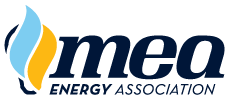The American Society of Mechanical Engineers has removed some tasks from the ASME B31Q task list. The online training, knowledge tests and evaluation forms offered by MEA and made available via EnergyU for the corresponding tasks are being discontinued.
What operators and contractors need to know:
Beginning January 1, 2022 MEA will no longer include the discontinued ASME tasks in the MEA certificate list. MEA will only make the TNGs/KNTs/PEFs listed below available upon special request to meet qualification requirements for operator task lists that have not yet been updated to remove them. Effective January 1, 2024 the MEA content will no longer be available.
What operators need to know:
MEA can work with you to create custom content in the event that you will continue to include the discontinued tasks in your OQ Plan after January 1, 2024.
Discontinued tasks:
Task 1021 was removed because it was determined that this activity was not widely-used in the industry, if at all.
Description: Apply or Repair Internal Coating Other Than by Brushing, Rolling or Spraying
TNG=MEA11241 | KNT=MEA1915 | PEF=MEA11078
Task 1421 was removed because the committee felt it did not meet the definition of a task (it is more akin to a job).
Description: Direct Inspection Techniques
TNG=MEA11281 | KNT=1955 | PEF=11118
Task 1281 was removed because it is essentially covered in task 1271.
Description: Mobile Gas Leakage Survey – Optical Methane
TNG=MEA11267 | KNT=MEA1941 | PEF=MEA11104
Visit ASME.org to purchase a 2021 edition of the Pipeline Personnel Qualification ASME B31 Standard.
